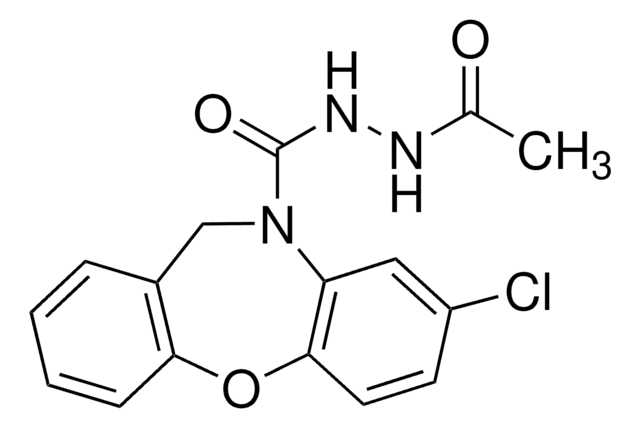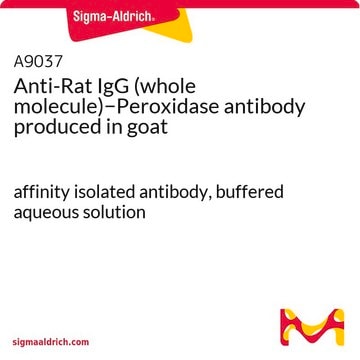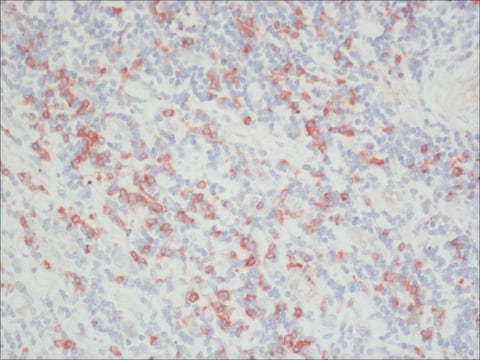A8227
AH23848 hemicalcium salt
≥90% (HPLC), powder
Synonym(s):
(4Z)-7-[(rel-1S,2S,5R)-5-((1,1′-Biphenyl-4-yl)methoxy)-2-(4-morpholinyl)-3-oxocyclopentyl]- 4-heptenoic acid hemicalcium salt
About This Item
Recommended Products
Quality Level
Assay
≥90% (HPLC)
form
powder
color
white to beige
solubility
DMSO: 5 mg/mL, clear
H2O: insoluble
originator
GlaxoSmithKline
storage temp.
−20°C
SMILES string
O=C(C[C@@H](OCC1=CC=C(C2=CC=CC=C2)C=C1)[C@H]3CC/C=C\CCC(O[Ca]OC(CC/C=C\CC[C@@H]4[C@H](OCC5=CC=C(C6=CC=CC=C6)C=C5)CC([C@H]4N7CCOCC7)=O)=O)=O)[C@H]3N8CCOCC8
InChI
1S/2C29H35NO5.Ca/c2*31-26-20-27(35-21-22-12-14-24(15-13-22)23-8-4-3-5-9-23)25(10-6-1-2-7-11-28(32)33)29(26)30-16-18-34-19-17-30;/h2*1-5,8-9,12-15,25,27,29H,6-7,10-11,16-21H2,(H,32,33);/q;;+2/p-2/b2*2-1-;/t2*25-,27-,29+;/m11./s1
InChI key
JDEBIDDIERGZQY-XVFRBOAOSA-L
Application
Biochem/physiol Actions
Features and Benefits
Storage Class Code
11 - Combustible Solids
WGK
WGK 3
Flash Point(F)
Not applicable
Flash Point(C)
Not applicable
Personal Protective Equipment
Certificates of Analysis (COA)
Search for Certificates of Analysis (COA) by entering the products Lot/Batch Number. Lot and Batch Numbers can be found on a product’s label following the words ‘Lot’ or ‘Batch’.
Already Own This Product?
Find documentation for the products that you have recently purchased in the Document Library.
Articles
Discover Bioactive Small Molecules for Lipid Signaling Research
Discover Bioactive Small Molecules for Lipid Signaling Research
Discover Bioactive Small Molecules for Lipid Signaling Research
Discover Bioactive Small Molecules for Lipid Signaling Research
Our team of scientists has experience in all areas of research including Life Science, Material Science, Chemical Synthesis, Chromatography, Analytical and many others.
Contact Technical Service








